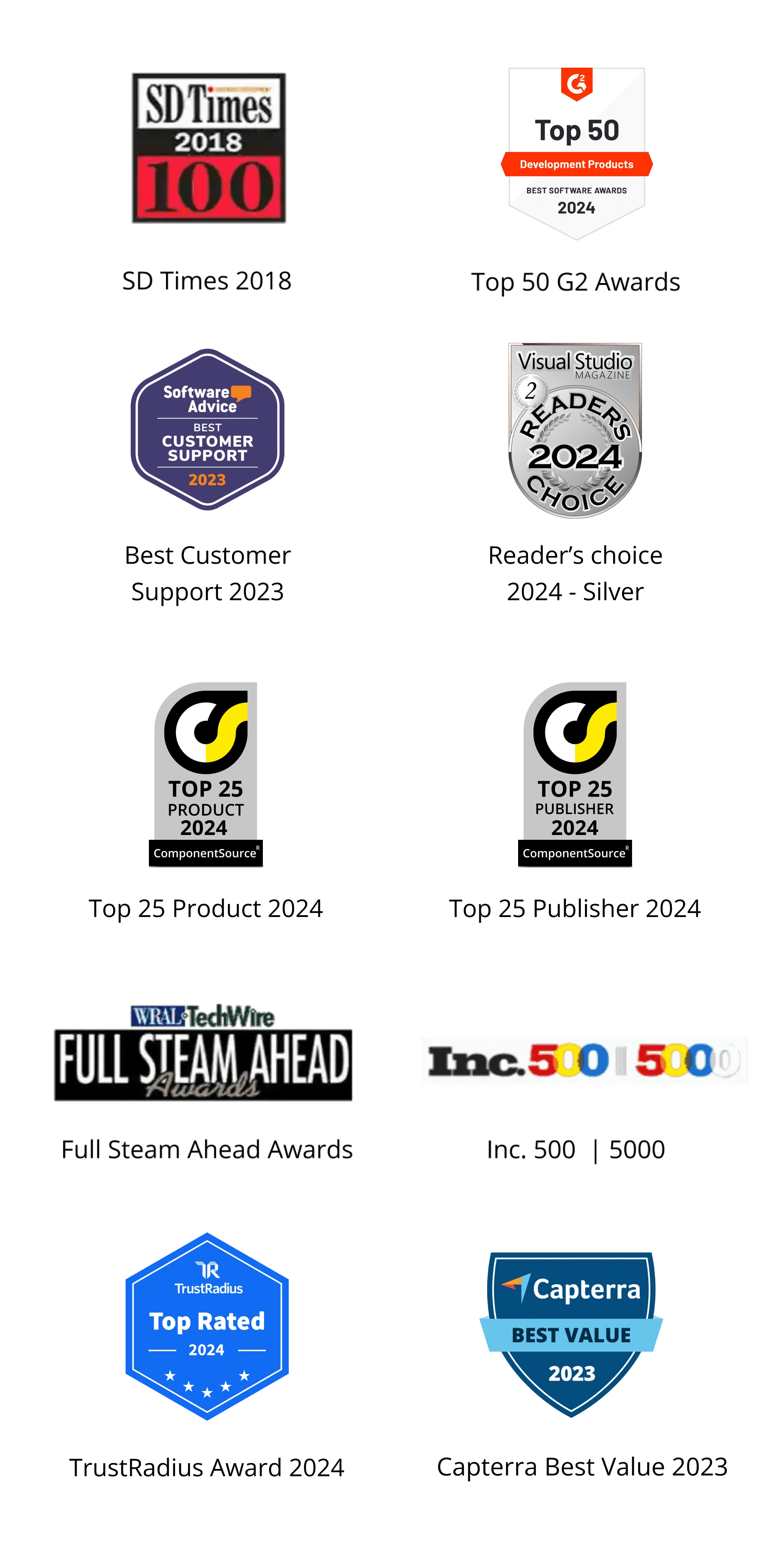Trusted by the world’s leading companies

Overview
The Dropdown Tree control is a text-box control that allows users to select a single value or multiple values from hierarchical data in a tree-like structure. It has several out-of-the-box features, such as data binding, checkboxes, templates, UI customization, accessibility, and preselected values.


Data binding
Bind data to the Dropdown Tree control from different data sources. Data can be local or in any remote service and fetched using different kinds of adapters like OData, OData V4, URL, JSON, and web API.
Render modes
The Dropdown Tree control has different render modes to visualize selected items.
Box mode
The selected items are displayed as a chip (box) in the Dropdown Tree input box.

Delimiter mode
The selected items are displayed with the delimiter character in the Dropdown Tree input box.

Default mode
The default mode is a combination of both the box and delimiter modes. When the control is in focus, selected items will be displayed as chips similar to the box mode. Otherwise, they will be displayed with a delimiter character as in the delimiter mode.

Template mode
The selected items are displayed with the given custom template value instead of the selected item text in the Dropdown Tree input box.


Checkboxes
The JavaScript Dropdown Tree control provides built-in support for checkboxes, allowing users to select more than one item. Enabling the checkboxes and autocheck functionality makes the parent and child items dependent on each other. This control also provides a Select All option in the pop-up.
Multiple selection
The Dropdown Tree control allows users to select more than one item in the pop-up using the multiselection functionality.

UI customization with templates
Use templates to change the appearance of the selection pop-up for tree items, plus the header and footer of the pop-up tree.
Header template
Design your own header for the pop-up tree using the header template.

Item template
Define the custom appearance of each tree item using the item template.

Footer template
Design your own custom footer for the pop-up tree using the footer template.

Built-in and customizable themes
Several built-in, Sass-based themes are available: Fluent, Tailwind CSS, Bootstrap 5, Bootstrap, Material, and high contrast. Users can customize these themes by either overriding the existing Sass styles or creating custom themes using the Theme Studio application.

Web accessibility
- Fully supports WAI-ARIA accessibility to make the Dropdown Tree accessible to screen readers and assistive devices.
- Follows WAI-ARIA best practices for implementing keyboard interaction.
- Uses WCAG 2.0-based design for UI visual elements such as foreground color, background color, line spacing, text, and images.
- Supports right-to-left (RTL) direction for users working with RTL languages like Hebrew and Arabic.
Developer-friendly APIs
Developers can customize all UI elements and control their behaviors according to the end user’s requirements using the control’s rich set of client-side APIs.
Other supported frameworks
The Dropdown Tree component is also available in React, Angular, and Vue frameworks. Check out the different Dropdown Tree platforms from the links below:
145+ JAVASCRIPT UI CONTROLS
Our Customers Love Us


 Documentation
Documentation
Awards
Greatness—it’s one thing to say you have it, but it means more when others recognize it. Syncfusion® is proud to hold the following industry awards.














